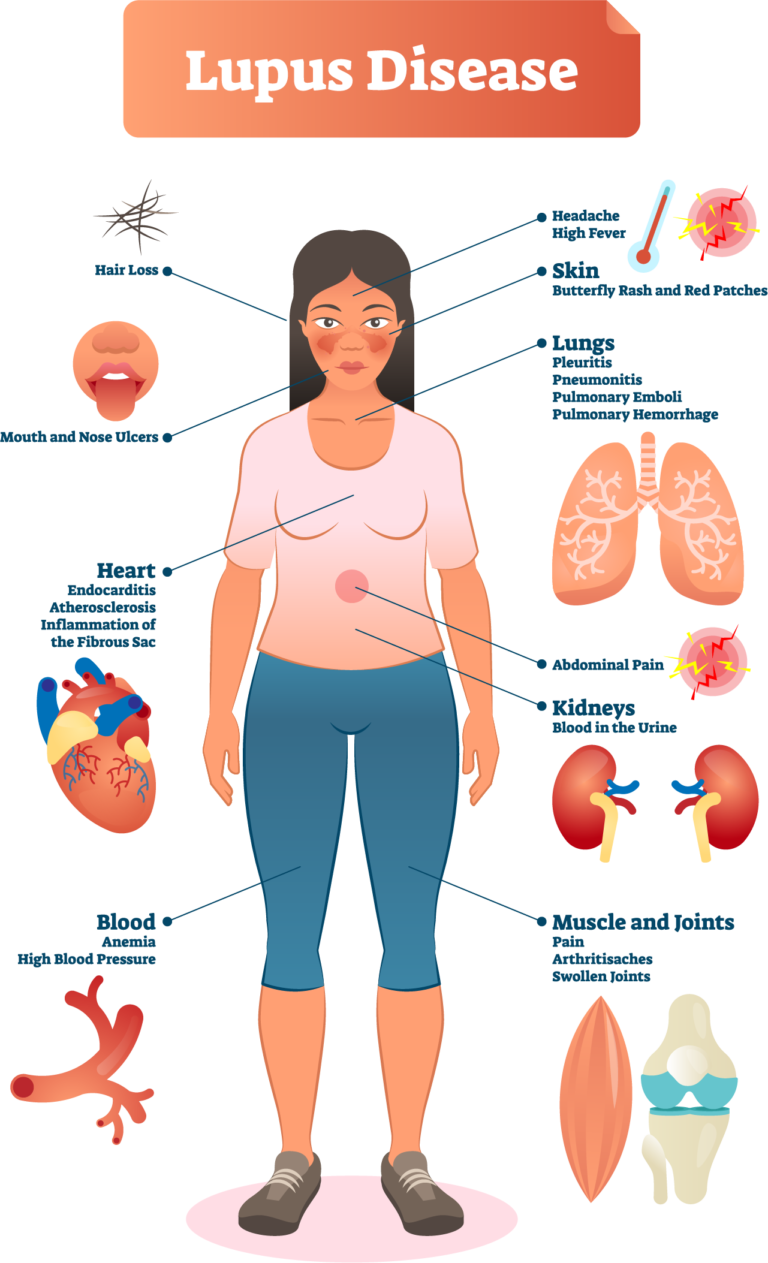Does Lupus Cause Weight Loss? Understanding Your Body's Changes
Living with lupus, or knowing someone who does, often brings a lot of questions about how this condition affects the body. One really common question, and it's a very important one, is about weight. People often wonder, "Does lupus cause weight loss?" It's a valid concern, you know, because changes in body weight can feel quite unsettling and often point to something happening inside. This autoimmune condition, which affects so many people, can indeed bring about various physical shifts, and weight changes are certainly among them. For anyone trying to manage lupus, or just trying to figure out what's going on, understanding these patterns is absolutely essential.
It's not just about the numbers on a scale, either. When your body starts to change in ways you don't expect, like losing weight without trying, it can feel pretty confusing. This kind of unexplained weight loss, where your eating and exercise habits haven't really shifted, is actually one of the many symptoms that can show up with lupus. So, yes, the short answer is that lupus can be connected to losing weight, and we'll explore why that happens.
We're going to talk about how lupus can affect your body's weight, looking at both why you might lose weight and, surprisingly, why you might gain some too. We'll also cover the role of inflammation, sleep, and even the medicines used to treat lupus. So, you know, stick around to get a clearer picture of these body changes.
Table of Contents
- Lupus and the Mystery of Weight Changes
- Beyond Inflammation: Other Factors at Play
- Medications and the Weight Paradox
- Navigating Weight Changes with Lupus
- Frequently Asked Questions
Lupus and the Mystery of Weight Changes
It's interesting, really, how lupus can throw so many different things your way. When we talk about weight, it's not always a simple case of losing pounds. In fact, lupus can lead to weight fluctuations, meaning your body weight might go up or down, depending on how the condition and its treatments are affecting you. It's a bit of a complex picture, honestly.
Unexplained Weight Loss: A Common Sign
So, to get right to it, yes, systemic lupus erythematosus, often called SLE, can indeed cause weight loss. This is especially true when someone is experiencing unexplained weight loss, which means losing weight even when their eating habits and exercise routines haven't really changed. It's one of those things that can be quite noticeable, and, you know, it's a sign that your body is dealing with something.
This kind of weight loss is often linked to the disease's chronic inflammation. Lupus, as an autoimmune condition, basically causes your body's immune system to attack its own healthy tissues. This constant internal battle, you see, burns a lot of energy. It's like your body is always running a marathon, even when you're just sitting still, which, you know, can really affect your weight.
The Role of Inflammation and Metabolism
The chronic inflammation that comes with lupus can actually lead to an increased metabolic rate. What this means, basically, is that your body is burning calories at a faster pace than usual. It's a bit like having a furnace that's always on high, even when it doesn't need to be, so it uses up more fuel. This heightened metabolic activity, combined with other symptoms, can easily contribute to weight loss.
When your body is constantly fighting inflammation, it uses up more energy than it normally would. This can make it hard to maintain your usual weight, or even gain weight, even if you're eating enough. It's a pretty big deal, you know, how much energy your body expends just trying to keep things in balance.
Cachexia: When Active Lupus Causes Body Wasting
There's a term for significant weight loss associated with chronic illness, and it's called cachexia. As Dr. Petri mentions, "active lupus can cause weight loss, also called cachexia," or body wasting. This isn't just about losing a few pounds; it's a more serious form of weight loss that involves a loss of muscle mass and fat, and it can really weaken a person.
Cachexia is a pretty concerning symptom, and it usually happens when the lupus is particularly active or severe. It shows just how much the disease can impact your overall body health and function. It's a clear sign that the body is under significant stress, and, you know, it needs attention.
Beyond Inflammation: Other Factors at Play
While inflammation is a major player, it's not the only reason why someone with lupus might see their weight change. There are several other aspects of living with lupus that can influence weight, and it's important to look at the whole picture. It's all connected, really.
Sleep and Its Impact on Your Weight
Lupus can cause sleep issues, and poor sleep can, you know, definitely affect your weight. When you're not getting enough restful sleep, your body's hormones that regulate appetite can get thrown out of whack. This can lead to cravings for less healthy foods or simply a general disruption in your eating patterns.
Sleep deprivation also impacts your energy levels. If you're constantly tired, you're less likely to be active, and that can certainly play a role in how your body uses or stores energy. It's a bit of a vicious cycle, you see, where poor sleep leads to less activity, which then affects weight.
Stress and Lifestyle Habits
Stress management for lupus is incredibly important, and it can help with inflammation, poor eating habits, or inactivity. When someone is under a lot of stress, their body releases hormones like cortisol, which can influence metabolism and appetite. Sometimes, stress can suppress appetite, leading to weight loss, while other times it can lead to emotional eating and weight gain. It really just depends on the person.
The chronic nature of lupus can be very stressful, and this stress can then impact a person's lifestyle choices. They might not feel up to preparing healthy meals, or they might not have the energy for physical activity, which, you know, can contribute to weight changes over time.
Appetite and Energy Levels
Often, people with lupus experience weight loss or gain due to loss of appetite, unhealthy dietary habits, or decreased energy and mobility. When you don't feel like eating, or when certain foods make you feel worse, it's hard to get the nutrients your body needs. This can lead to unintended weight loss.
Similarly, the extreme fatigue that is so common with lupus can make it incredibly difficult to stay active. If you're too tired to move around much, your body isn't burning as many calories, which could contribute to weight gain for some people. It's a tricky balance, honestly, managing energy levels with appetite.
Medications and the Weight Paradox
It's a bit of a paradox, but while lupus itself can cause weight loss, the medications used to treat it can sometimes result in weight gain. For example, corticosteroids, which are often prescribed to reduce inflammation in lupus, are well-known for causing increased appetite and fluid retention, which can lead to weight gain. So, you know, it's not always straightforward.
This means that lupus can cause both weight gain and weight loss, depending on disease activity, the specific treatments you're on, your lifestyle choices, and your individual health factors. It's a really complex interplay of elements, and what happens for one person might be completely different for another. That's why understanding these patterns is, like, really important.
Navigating Weight Changes with Lupus
Given all these factors, it's clear that weight changes in lupus are not just about eating too much or too little. They are often a direct result of the disease itself, its symptoms, and its treatments. For the approximately 1.5 million Americans estimated to have lupus, according to Time magazine, managing these body changes is just one more thing on a long list of challenges, which also includes pain, fatigue, hair loss, and heart problems.
If you experience weight loss or a significant loss of appetite, it's really important to talk to your healthcare provider. They can help figure out why it's happening and whether it's related to your lupus activity, your medications, or something else entirely. They can also offer strategies to help you manage your weight in a healthy way. This is, you know, crucial for your overall well-being.
Maintaining a healthy weight with lupus is about more than just aesthetics; it's about supporting your body as it deals with a chronic condition. Your doctor can help you create a plan that addresses your specific needs, whether that involves dietary adjustments, managing sleep better, or finding ways to reduce stress. You can learn more about managing chronic conditions on our site, and, you know, there's always more information to find here too.
Frequently Asked Questions
Here are some common questions people ask about lupus and weight changes:
Can lupus cause rapid weight loss?
Yes, lupus can certainly cause rapid weight loss, especially during periods of high disease activity. This is often due to the increased metabolic rate from chronic inflammation and sometimes a significant loss of appetite. It's a very noticeable change for many people, you know, and can be quite concerning.
What are other common symptoms of lupus besides weight changes?
Lupus has a wide range of symptoms that vary greatly from person to person. Common ones include extreme fatigue, joint pain and swelling, skin rashes (especially the butterfly rash on the face), fever, hair loss, and issues affecting organs like the kidneys, heart, and lungs. It's a very diverse condition, honestly, in how it presents.
Should I be concerned if I'm gaining weight with lupus?
Weight gain with lupus can also be a concern, as it's often a side effect of certain medications, particularly corticosteroids. It can also be influenced by decreased energy leading to less activity, or even stress. It's important to discuss any weight changes, whether loss or gain, with your doctor so they can help you understand the cause and manage it effectively. So, you know, always keep your healthcare team informed.

Weight loss : I started my weight loss August 201... - LUPUS UK

Living with Lupus: How MacKenzie Reached a Healthy Weight

How Lupus Is Influenced by Gut Health